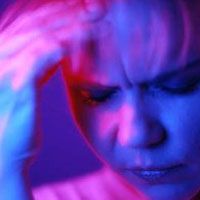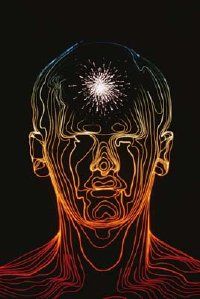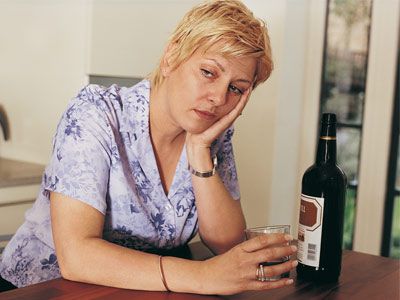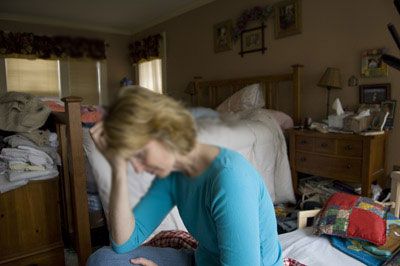
In bed, you toss and turn, unable to get a good night's sleep. You feel anxious and worried. There's plenty to do, but the work piles up because you feel listless and tired. You don't even want to do anything fun. Friends tell you to "pull yourself together," but you feel helpless and hopeless. You have difficulty concentrating and making decisions. When you look in the mirror, you hate yourself. You are definitely in one of life's valleys-you are depressed.
Everyone gets the blues once in a while. Emotional lows and highs are a normal part of life. The blues become depression when you feel so lethargic and listless you can't function normally in everyday life. In this article, we will cover all aspects of depression, including:
Advertisement
- Types of Depression One of the factors that make depression hard to understand is that there are so many different types of depression. In this section, we will list the various types of depression and explain the subtle yet important distinctions. The most common type of depression is reactive depression, which is a depression that is brought on by a traumatic or stressful event. We will also cover seasonal affective disorder, which occurs mostly during the winter and is usually a result of a lack of sunlight. We will also cover biochemical depression and depression that is brought on by disease or drug abuse.
- Causes of Depression On this page, we will explore the causes of depression. While not all medical professionals agree to what exactly causes depression, there are some undisputed risk factors that you can be wary of. First we will look at the two main schools of thought on depression -- social learning and biological predisposition. Next, we will look at the environmental factors that influence depression. From a new job to simple solitude, your environment can seriously influence the onset of depression.
- Symptoms of Depression Because the outward signs of depression can be subtle, it is possible to suffer from depression for weeks or even months before the victim even realizes there is something wrong. The symptoms of depression can be deceptive or even contradictory. For instance, sleeping too much can be just as much of a sign of depression as having difficulty falling asleep. In this section, we will review the symptoms of depression to make for an easier diagnosis.
- Treatments for Depression The treatments for depression usually attempt to correct the problem that is causing stress or anxiety in the patient. Whether the cause is environmental or biochemical, there are a range of treatment options available. In this section, we will list and describe the various treatments for depression. First, we will explore psychotherapy and the various ways it can be used to help and individual suffering from depression. Next, we will examine the many medications used to treat depression chemically.
- Alternative Treatments for Depression For a minor case of depression, you might not have to resort to therapy or medications. There are some basic techniques you can try at home to improve your mood. Most of all, you could try talking out your feelings or expressing yourself in some other way. You'd be surprised how communication can give you perspective on your feelings. But there are many other remedies from more exercise to changing your diet that could help you shake your depression.
This information is solely for informational purposes. IT IS NOT INTENDED TO PROVIDE MEDICAL ADVICE. Neither the Editors of Consumer Guide (R), Publications International, Ltd., the author nor publisher take responsibility for any possible consequences from any treatment, procedure, exercise, dietary modification, action or application of medication which results from reading or following the information contained in this information. The publication of this information does not constitute the practice of medicine, and this information does not replace the advice of your physician or other health care provider. Before undertaking any course of treatment, the reader must seek the advice of their physician or other health care provider.
Advertisement








